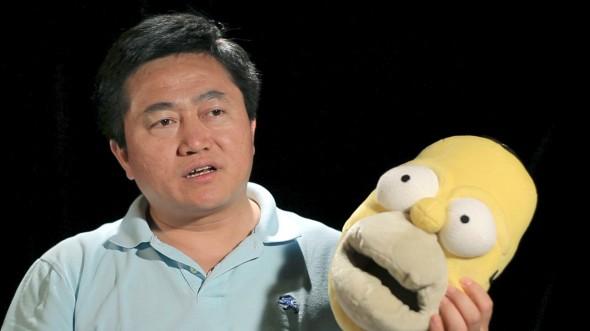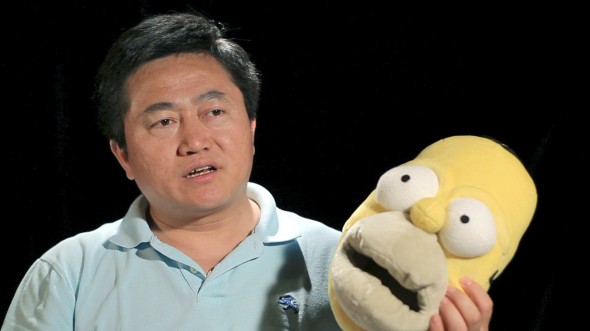WASHINGTON—While China has one fifth of the world’s population, the Chinese regime racks up far more than that proportion of the world’s human rights abuses. Responsible for Equality and Liberty (REAL) and several other human rights groups marked Human Rights Day with that unfortunate fact in mind by screening the award-winning documentary “Free China” and hosting a talk by one of the subjects of the film, in an event held on Dec. 10 at the National Press Club.
“You can’t be a human rights group if you’re ignoring 20 percent of the world,” said Jeffrey Imm, the founder of REAL and master of ceremonies for the event. “It’s in humanity’s interest,” to pay attention to human rights abuses in China, he said.
“Free China” tells the stories of two Falun Gong practitioners who each faced detention and torture for their beliefs and portrays the efforts of people around the world to stop the persecution by the Chinese regime of this traditional spiritual practice.
Dr. Charles Lee is one of the two individuals featured in the film and spoke at the event. Lee is of Chinese origin but held U.S. citizenship when he visited China in 2003. He was thrown into prison for three years.
Lee had returned to China to oppose the regime’s campaign against Falun Gong. He had plans to insert into television broadcasts documentary information about this persecution—information that is heavily censored in China.
Lee explained how this persecution came about. “We found a way of life which is much better than the doctrines given by the Communist Party,” he said, explaining the attraction of tens of millions of Chinese to Falun Gong during the 1990s. That led to paranoia from the Chinese Communist Party (CCP), Lee says, which was terrified of losing power.
Lee also spoke of the large number of human rights crimes committed by the CCP over its decades of rule, some of them particularly grotesque. These included descriptions of violent torture, public executions, mass starvation, cannibalism, and other atrocities.
This led Lee to a discussion of the most recent round of systematic and concentrated human rights abuses in communist China, carried out against Falun Gong practitioners since 1999. Lee focused in particular on the harvesting of organs from living Falun Gong adherents.
Organ harvesting targets Falun Gong practitioners detained in labor camps and prisons. They are blood-typed and then forced into having their organs pillaged when a matching donor requires an organ.
According to Corinna-Barbara Francis, a senior East Asian researcher at Amnesty International speaking at a recent European Parliament hearing, “Thousands and thousands of organ transplants occur in China... Belatedly, after a number of years of the issue having been exposed, [the regime] stated that the majority of the organs were harvested from executed prisoners.”
Francis said that much more horrifying and disturbing is the “allegation that these organs may be taken from live people. So in other words, individuals in China have their organs harvested and in the process of that they die... There are many groups that these organs may be taken from, the Falun Gong being one of the main groups. There are many things that provide supporting evidence that this may have occurred and may still be occurring.”
Lee not only spoke about the crimes of the Chinese regime, but also about how China could recover from those crimes.
He considers the Tuidang movement the foundation for China’s future. That movement calls for Chinese people to renounce their ties to the CCP and its affiliated organizations.
Lee said the Tuidang movement leads people to understand “the basic principles and moral structures of being a human being,” something that he believes that 60 years of communist rule has distorted.
Other speakers on the day included Niemat Ahmadi of Darfur Women Action Group, Carolyn Cook of United for Equality, a gender rights group, Nathalie Nguyen, with the International Committee To Support The Non-Violent Movement For Human Rights in Vietnam, and Ahmar Mustikhan, Senior Balochistan journalist. Balochistan is a region divided among Pakistan, Iran, and Afghanistan. The Pakistani part is that nation’s southwestern province and holds rich mineral deposits and a robust nationalist movement.
Mustikhan spoke about the persecution of Balochistani dissidents and the struggle of his people for independence. “China is deeply involved,” he said. “Some of those being tortured report the presence of Chinese intelligence personnel. I hope the U.S. will not be sleepy on this.”
The Epoch Times publishes in 35 countries and in 19 languages. Subscribe to our e-newsletter.







